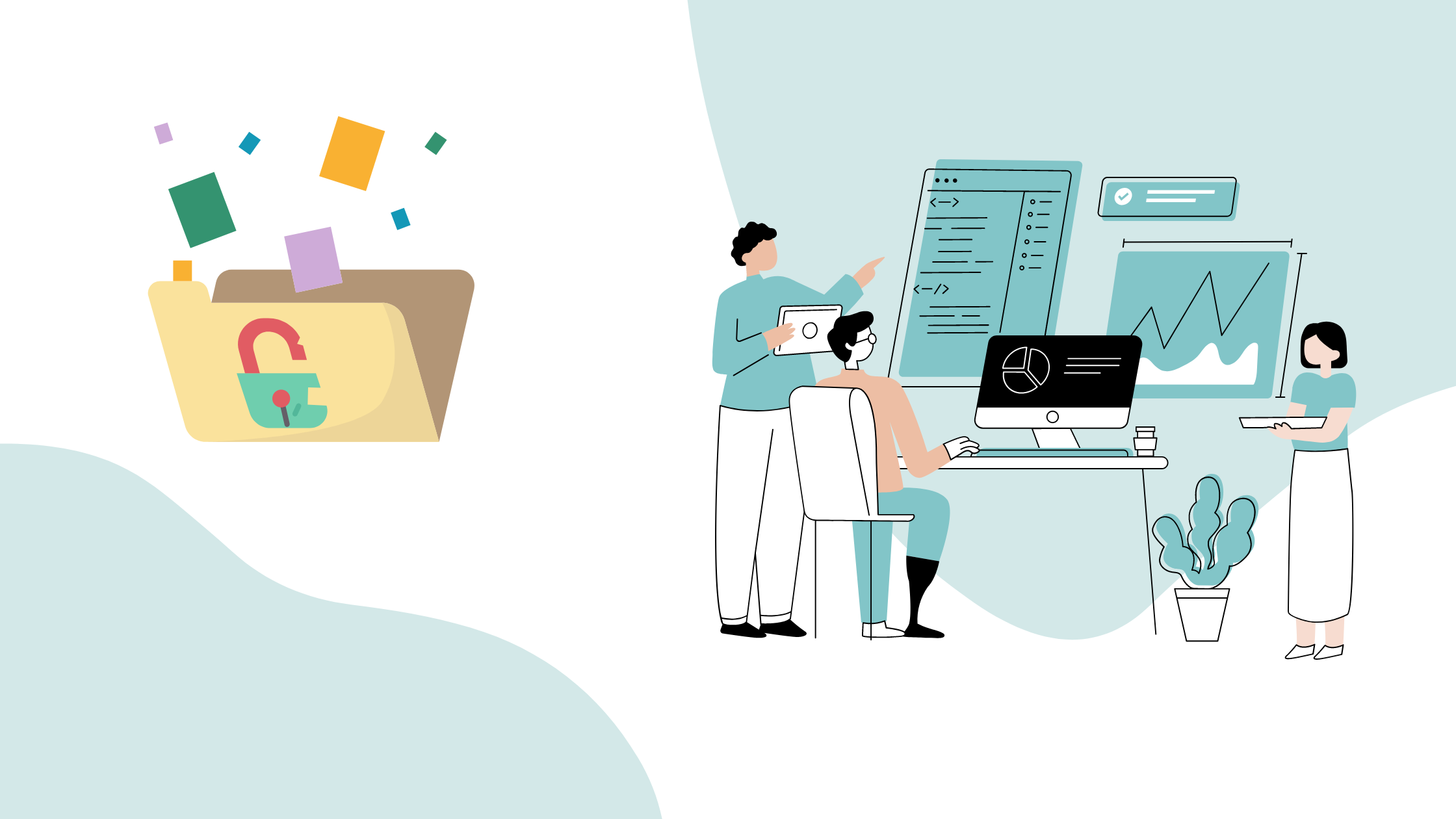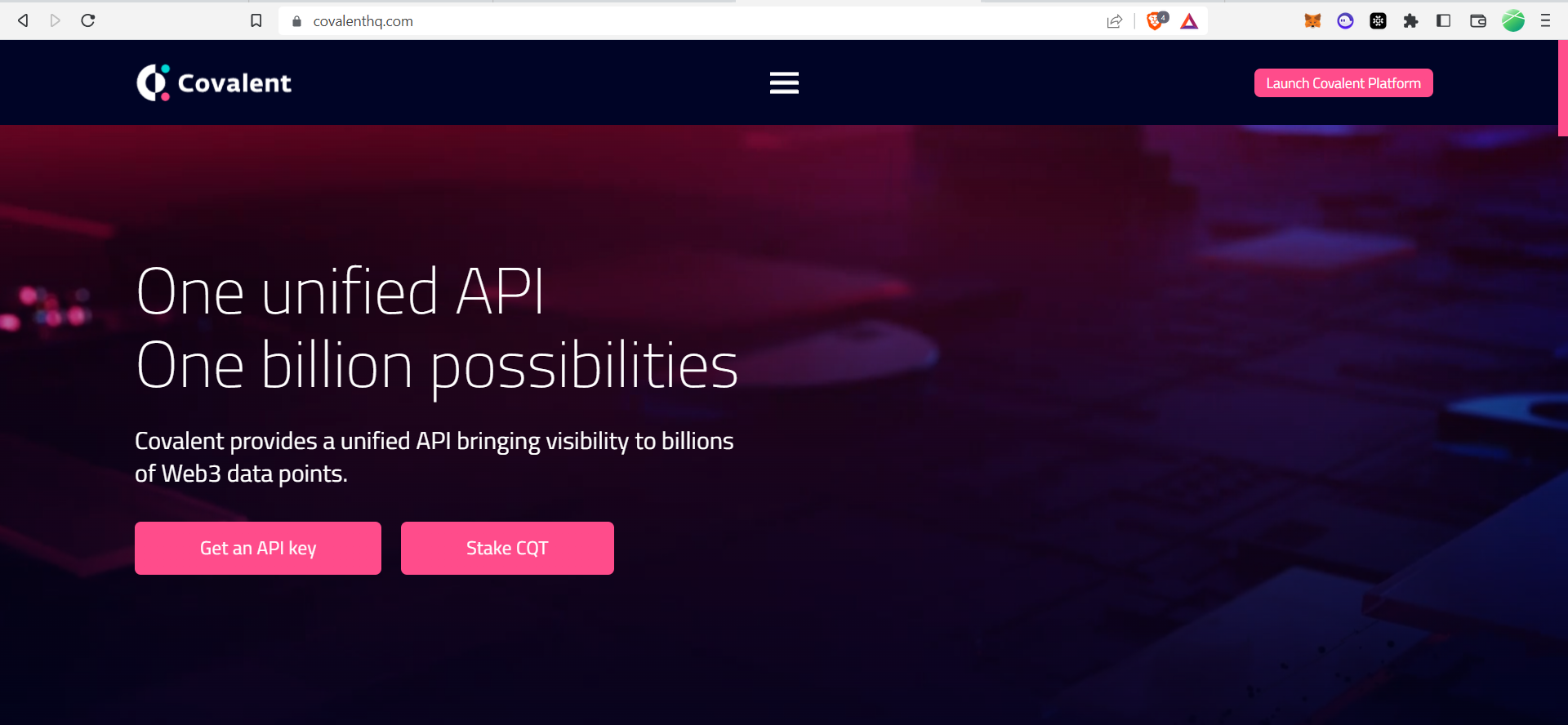Importance of managing blockchain information and how does Covalent API help the same?
 Aditi Polkam
Aditi Polkam
Have you ever been curious about how data that is stored on a blockchain can be accessed? Blockchain is a revolutionary technology that allows for secure data storage, and understanding how to access this data can be a difficult concept to grasp. Managing blockchain information can be a difficult task, due to the complexity of the technology. Blockchain is a distributed ledger technology that enables secure and transparent information storage and is used to create a digital chain of information that can be shared among multiple parties. The challenge of managing blockchain information lies in the fact that the data is stored on a decentralized network, making it difficult to access and update. In addition, the data stored on the blockchain is immutable, meaning that it cannot be changed or deleted. This can make it difficult to update or delete information, as any changes need to be done through the consensus of the network participants. Finally, the complexity of the technology can make it difficult to understand and use. This can lead to errors and mistakes, which can have serious repercussions. Overall, managing blockchain information can be a difficult task due to the complexity of the technology, the difficulty of accessing and updating the data, and the immutability of the data stored on the blockchain.
Accessing data on the blockchain
Blockchain information needs to be indexed and made accessible in order to increase transparency, security, and trust in the data stored on the blockchain. By making this data accessible, users can more easily verify the accuracy of the information, ensure the security of their data and trace the source of the data. Additionally, by indexing the data, users can quickly and efficiently search the blockchain for specific information, such as transactions, contracts, and ownership records. This will make it easier for users to audit and analyze the data stored on the blockchain, as well as to identify any potential security vulnerabilities. Furthermore, indexing and making blockchain data accessible will enable developers to create powerful applications that utilize the data in a secure, transparent, and efficient way. Therefore, it is essential that blockchain information is indexed and made accessible in order to ensure the integrity and security of the data stored on the blockchain. But how do we do it, technically?
Enter Covalent.
Covalent is a unified API that helps to organize the world's blockchain information, providing users with an easy-to-use interface and a comprehensive set of tools. It is the only multi-chain API that provides access to deep, granular, and historical blockchain data. Covalent has indexed the entire blockchain so nothing really remains inaccessible. Covalent API’s features help to make sense of the vast amounts of data that are generated from the various blockchains. It enables users to track, analyze, and visualize the data from multiple networks and blockchains, providing users with a comprehensive view of their data. Covalent’s tools are designed to make it easier for users to understand the data from different networks. It provides interactive visualizations of the data, allowing users to quickly spot trends and identify anomalies. It also provides powerful analytics tools that allow users to gain deeper insights into the data. In addition, Covalent provides users with access to a wide range of APIs, allowing them to easily access and integrate data from different networks. This makes it easier to build applications that need to access data from multiple blockchains. Overall, Covalent is a powerful platform that helps to make sense of the data generated by the world’s blockchains. It provides users with an easy-to-use interface and a comprehensive set of tools that make it easier to understand and analyze the data. Covalent Query Token (CQT) is a proof of stake (PoS) governance token powering the Covalent network.
Using the Covalent Unified API
You can access the API here on the official website.
You need an API key to get started with the API which you can generate by creating your account - click on 'Get an API key'

Example: To get transactions for address using Covalent API
request format: https://api.covalenthq.com/v1/{chain_id}/address/{wallet_address}/transactions_v2/
According to the docs, this returns all transactions along with their decoded log events. This endpoint does a deep crawl of the blockchain to retrieve all kinds of transactions that reference the address including indexed topics within the event logs given chain_id and wallet_address
so a sample request on the 'Polygon Mumbai Testnet' would look like: https://api.covalenthq.com/v1/80001/address/0xE5C73643Fba5652635207c689091A00eeAdae644/transactions_v2/
returning data in a JSON object like this, with items array having details of every transaction on that address
{
"address": "0xe5c73643fba5652635207c689091a00eeadae644",
"updated_at": "2022-12-07T07:00:28.983983340Z",
"next_update_at": "2022-12-07T07:05:28.983983720Z",
"quote_currency": "USD",
"chain_id": 80001,
"items": []
}
Other significant API requests
1. Get historical portfolio value over time
returns wallet value for the last 30 days at 24 hour interval timestamps.
2. Get ERC20 token transfers for address
returns all ERC20 token contract transfers along with their historical prices at the time of their transfer.
3. Get NFT transactions for contract
returns a list of transactions for the particular contract.
Final Thoughts
In conclusion, the Covalent unified API offers a powerful and convenient solution for indexing blockchain data. With its robust and easy-to-use interface, it allows users to quickly and easily access the information they need from multiple blockchain networks. This makes it an invaluable tool for developers and other users who need to work with blockchain data on a regular basis. Its ability to provide a unified view of data from multiple blockchains is particularly useful, as it allows users to easily compare and analyze data from different networks in a single platform. Overall, the API is a valuable resource for anyone looking to index and work with blockchain data.
Subscribe to my newsletter
Read articles from Aditi Polkam directly inside your inbox. Subscribe to the newsletter, and don't miss out.
Written by

Aditi Polkam
Aditi Polkam
I write on how to build better backend for your apps